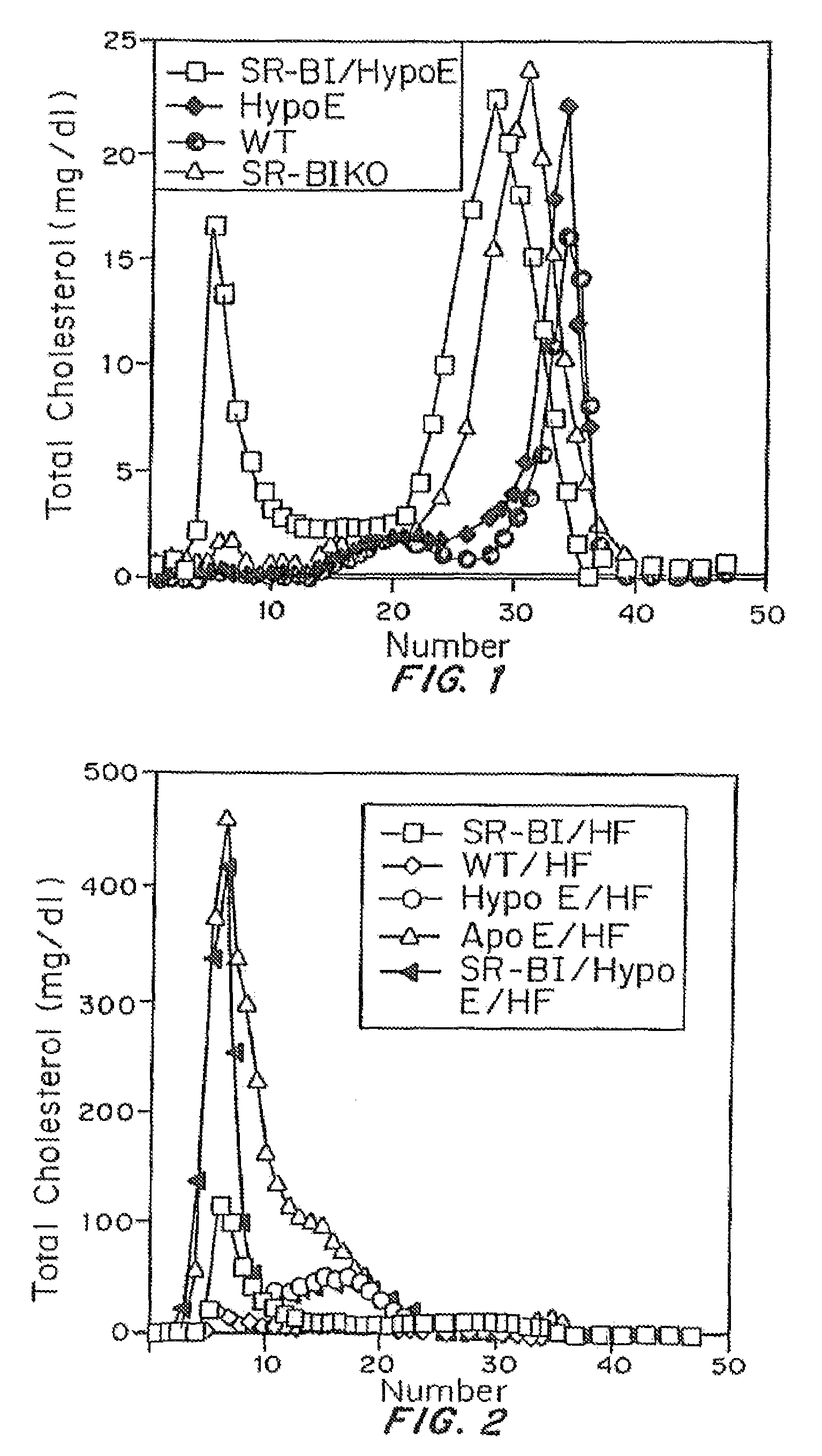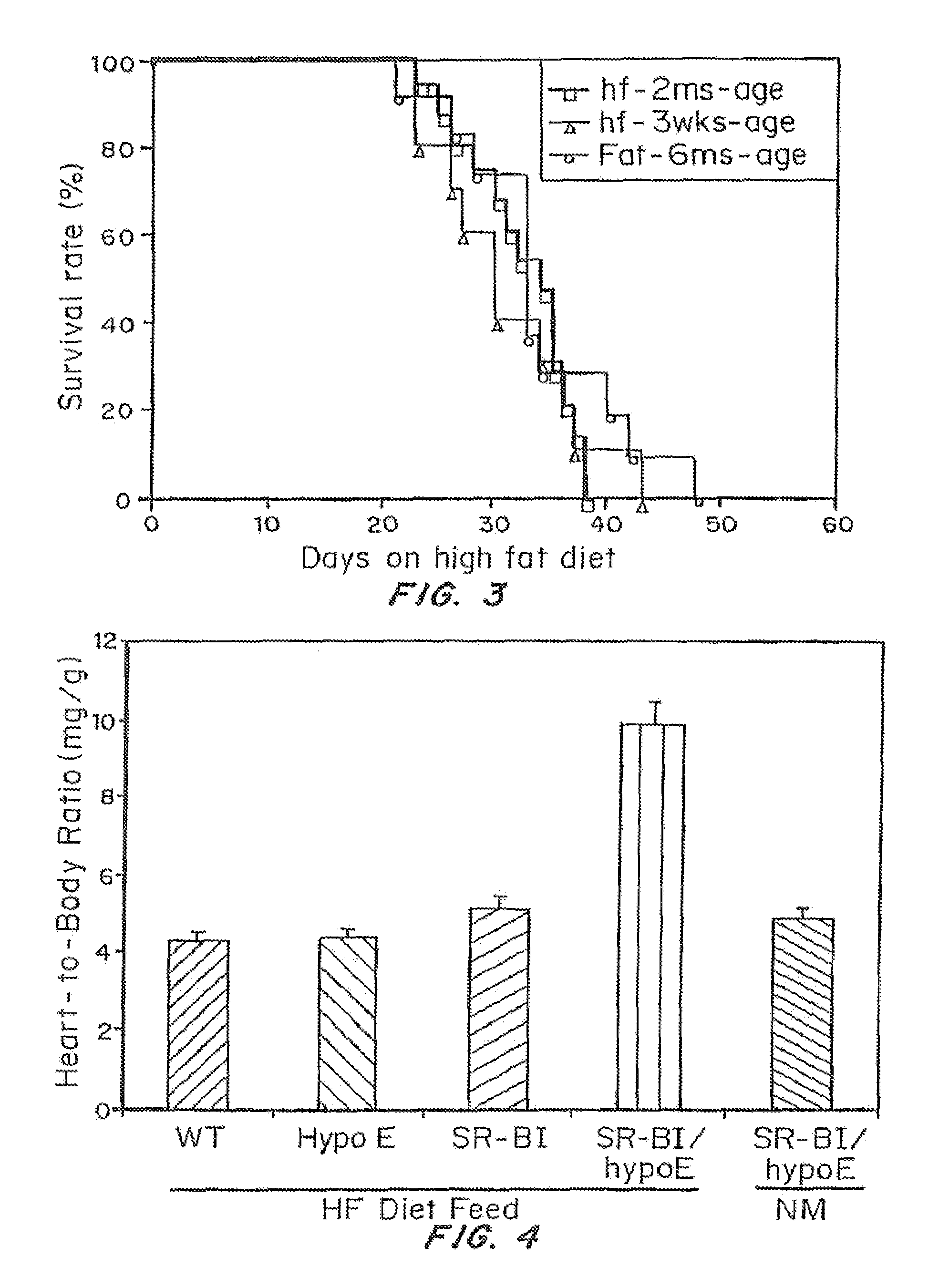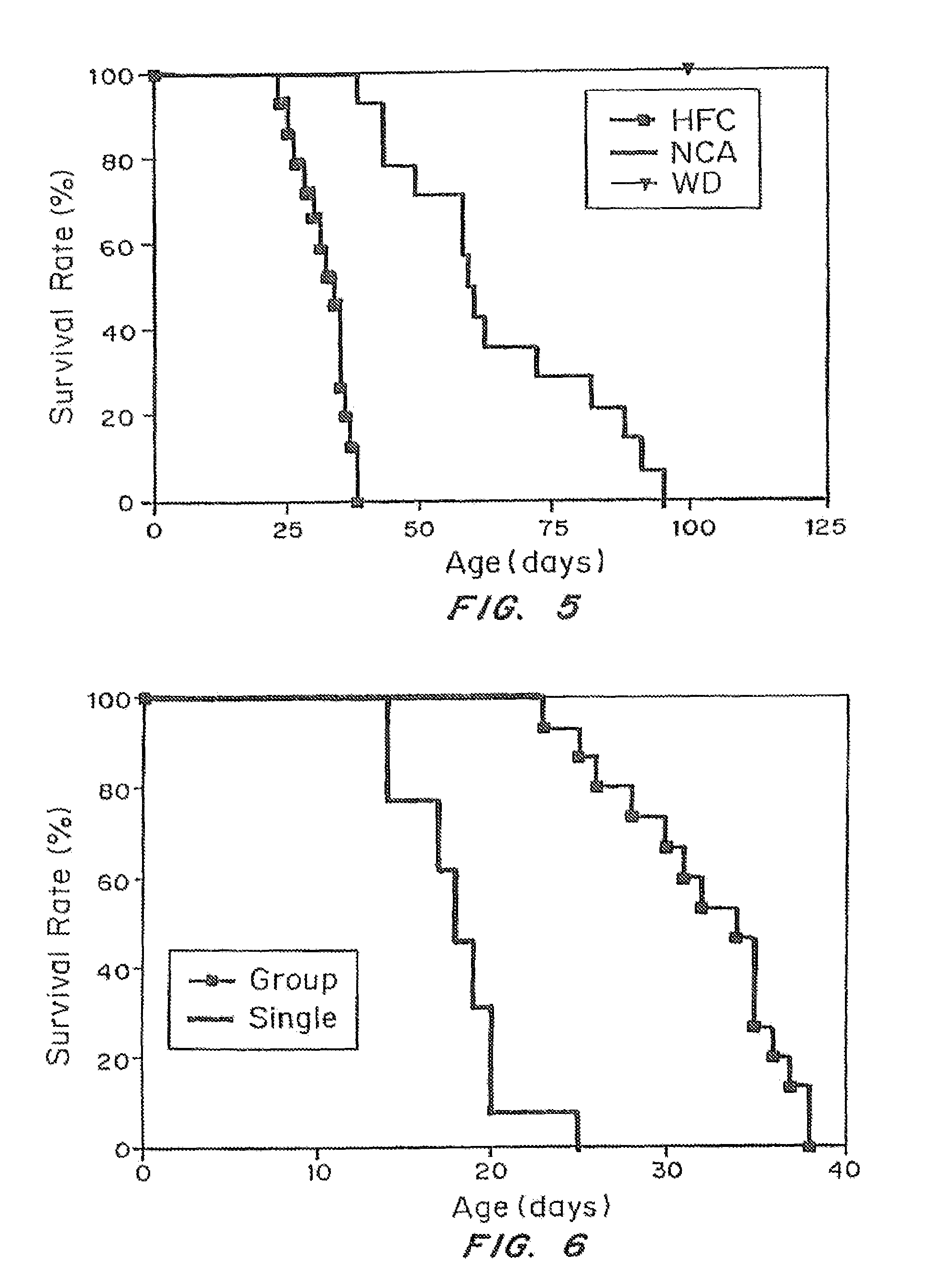Inducible heart attack animal model
- Summary
- Abstract
- Description
- Claims
- Application Information
AI Technical Summary
Benefits of technology
Problems solved by technology
Method used
Image
Examples
example 1
Production and Characterization of Combination Transgenic Animals which do not Express SR-BI and have Reduced ApoE Expression (hypoE)
[0073]Generation of SR-BI / hypoE mutant mice.
[0074]SR-BI / hypoE mice were generated by crossbreeding established SR-BI knockout mice with hypoE mice. Homozygous SR-BI knockout dams are infertile (Miettinen et al. (2001) J Clin Invest. 108(11):1717-22; Rigotti et al (2003) Endocr Rev. 24(3):357-87). It is therefore necessary to use an SR-BI knockout male crossing with a hypoE dam while also accounting for the infertility of female mice during crossbreeding. Alternatively, the cholesterol lowering drug probucol has been shown to restore fertility in the SR-BI knockout females and may be administered during the breeding protocol (Miettinen et al. 2001).
[0075]Characterization of Plasma Lipids and Apolipoproteins
[0076]Plasma lipids and apolipoproteins were assayed for wild type and SR-BI / hypoE mice and compared with hypoE, SR-BI− / − and ApoE− / − single knockout...
example 2
Manipulation of the Progress of CHD by Feeding Mice Which do not Express SR-BI and Have Reduced ApoE Expression (hypoE) Different High Fat Diets
[0086]SR-BI / hypo E mice were generated as described in Example 1. SR-BI / hypo E mice were fed a normal low fat chow diet, a high fat (HF) diet consisting of 7.5% cocoa butter, 15.8% fat, 1.25% cholesterol, and 0.5% sodium cholate, a NCA diet consisting of 7.5% cocoa butter, 15.8% fat, and 1.25% cholesterol, or a Western Diet (WD) diet consisting of 21.2% fat, and 0.2% total cholesterol.
[0087]Plasma lipids and apolipoproteins were assayed for SR-BI / hypoE mice when fed a normal low fat, low cholesterol diet, the HF diet, the NCA diet, or the WD diet. These data are summarized in Table 5.
[0088]
TABLE 5Plasma lipid and apolipoprotein levels of SR-BI / hypo E mice on different high fat diets.RatioDietTCUCPLTGUC / TCUC + PLNormal (n = 19)1010 ± 237817 ± 188686 ± 93 42 ± 180.811 ± 0.0326.63 ± 1.7HF diet (n = 1)6630 ± 3371284 ± 274 976 ± 25372 ± 130.787 ±...
example 3
Survival of Mice Which do not Express SR-BI and Have Reduced ApoE Expression (hypoE) Depends on the Number of Animals Per Cage
[0090]SR-BI / hypo E mice were generated as described in Example 1. SR-BI / hypo E mice were fed a high fat (HF) diet consisting of 7.5% cocoa butter, 15.8% fat, 1.25% cholesterol, and 0.5% sodium cholate.
[0091]SR-BI / hypo E mice were housed as a group or single and survival was assessed after the animals were administered a HF diet. Animals were fed the normal or HF diet and monitored for survival. SR-BI / hypoE mice housed alone exhibit shorter survival times than mice housed as a group. Animals on the HF diet housed alone died within four weeks while animals on the HF diet housed as a group died within seven weeks. A 50% survival rate was observed at approximately 19 days for animals housed alone and approximately 30 days for animals housed as a group. This is shown in FIG. 6.
[0092]After 14 days on the HF diet, SR-BI / hypo E mice housed alone displayed elevated le...
PUM
| Property | Measurement | Unit |
|---|---|---|
| internal diameter | aaaaa | aaaaa |
| survival time | aaaaa | aaaaa |
| pH | aaaaa | aaaaa |
Abstract
Description
Claims
Application Information
 Login to View More
Login to View More - R&D
- Intellectual Property
- Life Sciences
- Materials
- Tech Scout
- Unparalleled Data Quality
- Higher Quality Content
- 60% Fewer Hallucinations
Browse by: Latest US Patents, China's latest patents, Technical Efficacy Thesaurus, Application Domain, Technology Topic, Popular Technical Reports.
© 2025 PatSnap. All rights reserved.Legal|Privacy policy|Modern Slavery Act Transparency Statement|Sitemap|About US| Contact US: help@patsnap.com



